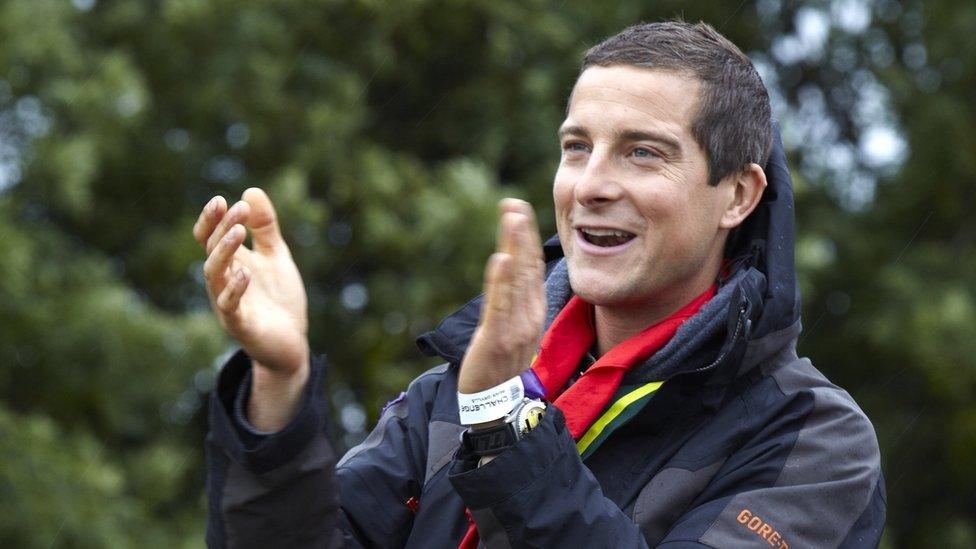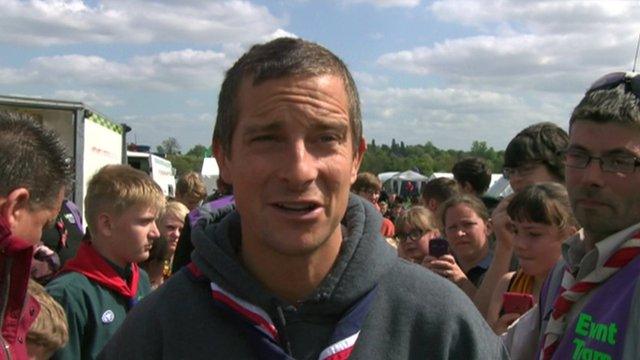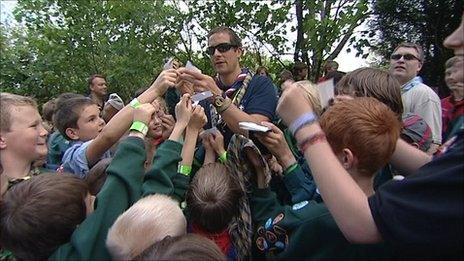Scout Association bids to boost young volunteers
- Published

Chief Scout Bear Grylls said the new campaign would help young people get involved in volunteering
Young people often lack the chance to help in their local communities as volunteers, suggests research for the Scout Association.
More than four-fifths (82%) of 1,000 12- to 24-year-olds questioned said it was important for young people to help tackle social issues.
But only a third (35%) believed this opportunity was open to them locally.
Chief Scout Bear Grylls urged more young people to join the Scouts to support a new volunteering campaign.
Lending a hand
Overall, the figures from the representative sample suggest the UK could be losing out on 15.4 million hours of youth volunteering time every month, say the Scouts.
Some 37% of the young people polled by ComRes said they currently took part in some form of social action every week.
This is defined as volunteering their free time to help others in activities such as improving local open spaces or mentoring.
By contrast, ComRes also interviewed more than 1,000 Scouts in the same age group and found almost three-quarters (73%) did voluntary work at least once a week.
The Scouting Association carried out the research to mark the launch of a programme to enlist half a million scouts to volunteer for a range of charities.
A Million Hands, external aims to encourage scouts to improve the lives of people affected by disability and dementia, improving the mental wellbeing and resilience of families and ensuring global access to clean water and sanitation.
The six charities nominated by young scouts are:
Mind
Alzheimer's Society
WaterAid
Guide Dogs
The Canal and River Trust
Leonard Cheshire Disability
Bear Grylls said he was excited to be launching the campaign.
"The Scout Association is today pledging one million hands to supporting four of the biggest social issues currently facing the UK and the wider world, but we can't do it on our own.
"We want all young people to come and give scouting a try and to get involved. This is how we can all play a vital role in shaping tomorrow's world for the better."
Campaign leader Jack Abrey called it "a chance to remove the wholly unfair negative perception of young people".
"It's a way to demonstrate that scouts can create meaningful and impactful change in their communities in a way that also develops the young people taking part, giving them the confidence, resilience and belief that change is possible," he said.
- Published17 May 2015

- Published7 May 2011
